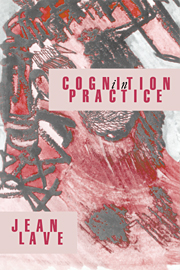3 - Life after school
Published online by Cambridge University Press: 02 December 2009
Summary
Drawing the investigation of arithmetic practice into the experienced, lived-in world will be a gradual process, for “problem solving” is the subject of this chapter as well as the last. The Adult Math Project did begin with a break from tradition, proceeding from Bartlett's dictum to begin experimental studies with observation of ongoing activities in situ (1932). We followed grocery shoppers through the supermarket and only subsequently translated certain aspects of observed activity into experimental form. Thus, the experimental tasks were not entirely based on normative models of proper cognition nor on an abstract view of proper grocery shopping. But we did search the supermarket observations for the most school-, experimental-like, aspects of shopping in order to construct the experimental tasks. Determining the best buy when comparing two similar grocery items was the central activity to emerge from this procedure. In this respect the work falls within the tradition of transfer research. But there is one further difference. The AMP gathered data on arithmetic activity by the same people in different settings. This made it possible to compare performances across situations rather than merely to extrapolate results from the laboratory to a putative everyday world. There is a fairly complex relationship then, a dialogue if you will, between conventional experimental methods and those employed here. This strongly suggests that the process of moving the enterprise into the lived-in world will require further disentangling of these alternative approaches to practice and theory at later points in the argument.
Information
- Type
- Chapter
- Information
- Cognition in PracticeMind, Mathematics and Culture in Everyday Life, pp. 45 - 75Publisher: Cambridge University PressPrint publication year: 1988
Accessibility standard: Unknown
Why this information is here
This section outlines the accessibility features of this content - including support for screen readers, full keyboard navigation and high-contrast display options. This may not be relevant for you.Accessibility Information
- 1
- Cited by
